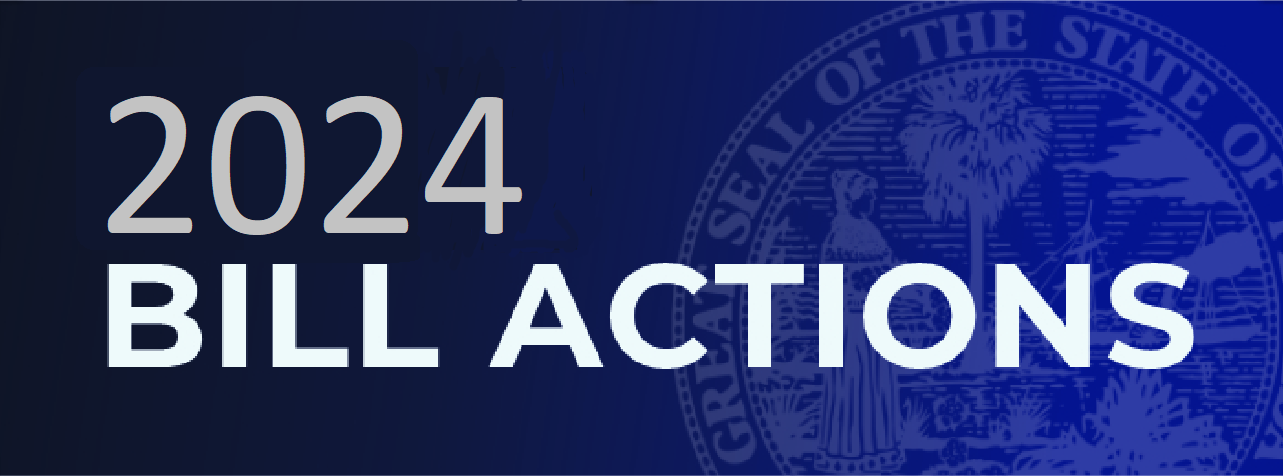Resilient Florida ranks 3rd in the nation in Grade 4 Reading and 4th in Grade 4 Mathematics
TALLAHASSEE, Fla. — Today, Governor Ron DeSantis announced the results of the 2022 National Assessment of Educational Progress (NAEP), which demonstrate once again that keeping kids in school throughout 2020 and 2021 has put Florida students well ahead of their peers, especially with younger and educationally at-risk students who were harmed the most from distance-learning in other states. In 2022, Florida’s 4th and 8th grade students earned the state’s highest ever rankings in each assessment and demonstrated historic achievement gap closure for at-risk students at all levels. Florida’s Hispanic students, black students, and students with disabilities all scored in the top 10 in every category.
NAEP assessments are the only assessment taken consistently across the nation and therefore serve as the nation’s report card. Last administered in 2019, the NAEP is administered every two years, although the 2021 assessments were delayed to 2022.
“We insisted on keeping schools open and guaranteed in-person learning in 2020 because we knew there would be widespread harm to our students if students were locked out. Today’s results once again prove that we made the right decision,” said Governor Ron DeSantis. “We also knew that younger and at-risk students would be the most impacted if schools were closed, and the results speak for themselves. In Florida our 4thgrade students rank #3 in Reading and #4 in Math, achieving top 4 in both English and Math for the first time in state history, while lockdown California and New York aren’t even in the top 30.”
“If we are meant to measure our impact by how we elevate our young generation, especially those most at-risk, Florida is clearly the #1 state in the nation in elevating its young people,” said Commissioner of Education Manny Diaz, Jr. “Florida’s Hispanic and black students, students with unique abilities, and students on free and reduced price lunch massively narrowed achievement gaps and proved the value of being in school in a classroom with their peers and learning in-person from Florida’s world-class teachers.”
These 2022 NAEP results affirm the predictions from national and Florida student learning indications over the last two years:
- Florida’s Spring 2021 Grade 3 Reading results showed early indications that school districts with higher rates of in-person instruction had more consistent learning outcomes and achievement gap closure between Spring 2019 and Spring 2021.
- Education Week’s 2021 Quality Counts rankings, which ranked Florida #3 for K-12 Achievement, further validated those early indicators with a long list of high rankings and student gains for Florida students.
- A November 2021 National Bureau of Economic Research report, “2021: Pandemic Schooling Mode and Student Test Scores: Evidence from US States,” found that the decline in students’ 2021 test scores as compared to prior years was significantly larger in districts which offered less access to in-person schooling. The same study cited Florida as an exception, as a state with a high in-person learning rate.
- A May 2022 Harvard study, “The Consequences of Remote and Hybrid Instruction During the Pandemic,” similarly found “that gaps in ‘math achievement by race and school poverty’ didn’t widen in school districts in states like Florida and Texas that mostly kept schools open.”
- In June 2022, Florida’s Math and English Language Arts (ELA) test results showed that African American students, students from economically disadvantaged families, and Hispanic students had gains on all Mathematics and ELA metrics.
- In July 2022, Florida’s school grades defied all expectations when 53 schools exited the School Improvement Support list in 2022; 100% of schools graded F in 2019 improved their grades in 2022, including one that earned a B and six that earned a C; and 84% of schools graded D and F in 2019 improved their grades in 2022.
Overall, the nation’s NAEP results show a national decline in Reading and Mathematics for 9-year-old students (Grade 4) and America’s most vulnerable students. In many states, this decline was due to government-imposed lockdowns and school closures. Yet, under Governor DeSantis’ leadership, Florida avoided widespread learning losses and Florida’s students are far exceeding the nation’s expectations.
While Florida boasts historic rankings in all four NAEP tests, Florida’s achievement gap closures were profound across the board upon closer inspection, and these results are a clear indication that Florida’s strategy to focus its recovery on early grades and at-risk students paid off:
- Florida is in the top 5 for average scale scores of Hispanic students across all grades and subjects
o Grade 4 Reading – #1 (maintaining this rank since 2013)
o Grade 4 Mathematics – #2 (same as 2019)
o Grade 8 Reading – #1 (up from number 2 in 2019)
o Grade 8 Mathematics – #4 (up from 5 in 2019)
- Florida is in the top 5 for average scale scores of students with disabilities across all grades and subjects
o Grade 4 Reading – #1 (up from number 2 in 2019)
o Grade 4 Mathematics – #1 (third time in a row)
o Grade 8 Reading – #2 (same as 2019)
o Grade 8 Mathematics – #4 (same since 2017)
- Florida is in the top 10 for average scale scores of black students across all grades and subjects:
o Grade 4 Reading – #3 (up from 4 in 2019)
o Grade 4 Mathematics – #2 (same as 2019)
o Grade 8 Reading – #4 (up from 6 in 2019)
o Grade 8 Mathematics – #8 (up from 17 in 2019)
- Students on Free and Reduced Lunch are ranked in the top 10 for average scale scores in three of four tests and improved massively on the fourth:
o Grade 4 Reading – #1 (same as 2019)
o Grade 4 Mathematics – #1 (third time in a row)
o Grade 8 Reading – #6 (down from 5 in 2019)
o Grade 8 Mathematics – #17 (up from 25 in 2019)
- Florida boasts the narrowest achievement gap between students with disabilities and students without disabilities in all grades and subjects.
- Florida’s achievement gap between Hispanic and white students is the narrowest in the nation in Grade 8 Reading.
- All of Florida’s subgroups significantly outperformed their national peers in Grade 4 Reading.
Grade and subject highlights include:
Grade 4 Reading
- 3rd in the nation in average scale score — up from 6th in 2019
- Moved ahead of New Jersey, Utah, and Colorado from 2019.
- While Florida’s Grade 4 Reading Average Scale Score remained constant from 2019 to 2022, average scale scores actually increased for several Florida subgroups:
o Hispanic students increased 1 point on average scale score.
o Asian/Pacific Islander students increased 4 points on average scale score.
o Students with disabilities increased 3 points on average scale score.
o English language learners increased 3 points on average scale score.
- Florida is the highest performing large state; Pennsylvania is 9th; California is 32nd; Texas is 33rd; and New York is 36th
Average Scale Score National Ranks for Grade 4 Reading Among Florida Subgroups
- Black students are third nationally, up from fourth in 2019.
- Hispanic students maintained their number one rank.
- White students placed fourth nationally, up from ninth in 2019.
- Free/reduced lunch students maintained first place ranking from 2019.
- Students with disabilities ranked first, up from second in 2019.
Grade 4 Mathematics
- Fourth in the nation in average scale score.
- Only two points below the number one state in nation.
- Florida is the highest performing large state; Texas is 14th; Pennsylvania is 17th; California is 38th; and New York is 46th
Average Scale Score National Ranks for Grade 4 Mathematics Among Florida Subgroups
- White, black, and Hispanic students ranked second in the nation.
- Free/reduced lunch students rank first in the nation for the third time in a row.
- Students with disabilities rank first for the third time in a row.
Grade 8 Reading
- 21st in the nation in average scale score, up from 22nd in 2019.
- Among the largest states, Florida outperformed Pennsylvania (26th); California (29th); and Texas (41st).
Average Scale Score National Ranks for Grade 8 Reading Among Florida Subgroups
- Black students ranked fourth nationally, up from sixth in 2019.
- Hispanic students ranked first nationally, up from second in 2019.
- Students with disabilities maintained second place ranking.
Grade 8 Mathematics
- 32nd in the nation in average scale score, up from 35th in 2019.
- Florida’s highest ever ranking in this category.
Average Scale Score National Ranks for Grade 8 Mathematics Among Florida Subgroups
- Black students ranked eighth nationally, up from 17th in 2019.
- Hispanic students ranked fourth nationally, up from fifth in 2019.
- Free/reduced lunch students ranked 17th nationally, up from 25th in 2019.
- Students with disabilities maintained fourth place ranking.
NAEP Background
NAEP is a congressionally mandated program that is overseen and administered by the National Center for Education Statistics (NCES), within the U.S. Department of Education and the Institute of Education Sciences. Results are available for the nation, states, and 27 urban districts, and are used to provide critical information about student achievement and data for improving educational practices. The current NAEP assessments were scheduled for 2021 but were postponed one year due to the pandemic. The next NAEP results will be reported in 2024.
For more information about Florida’s 2022 NAEP results, visit NAEP Results or The Nation’s Report Card.
###
.jpg)






.jpg)
